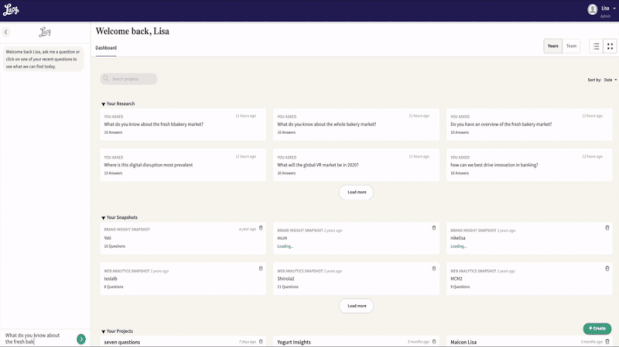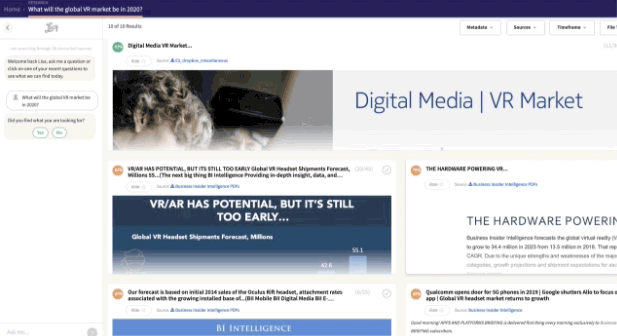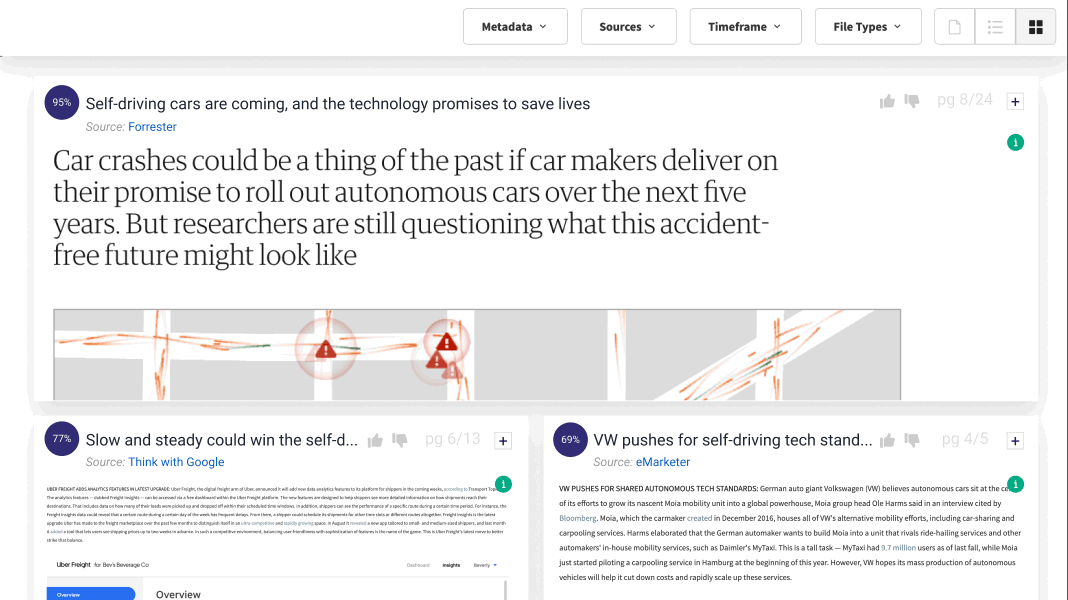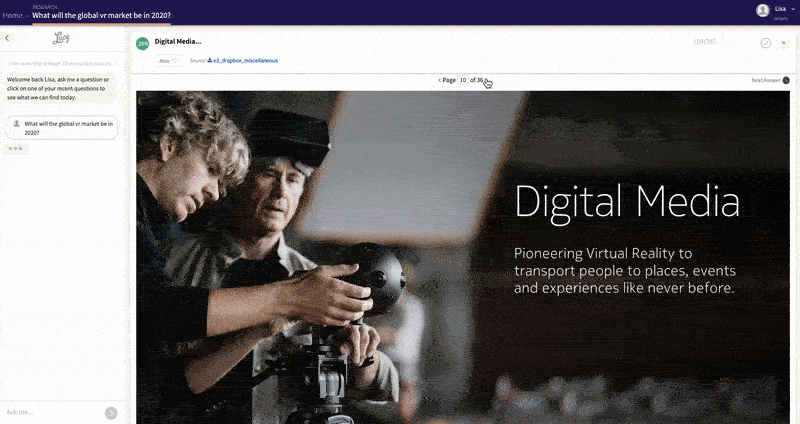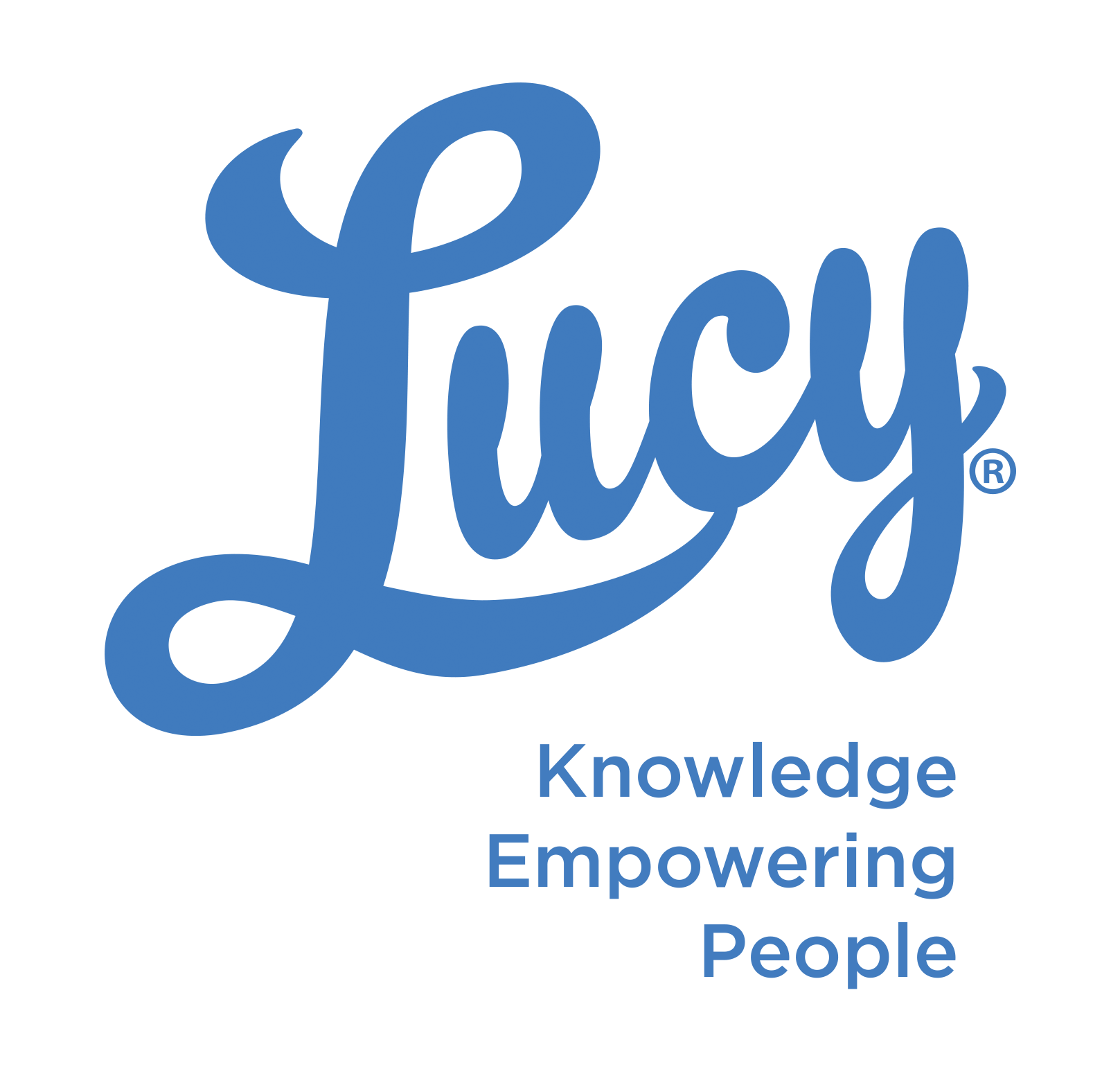The right knowledge management solution is crucial for any organization seeking a competitive edge. Investing in such a technology empowers teams with increased productivity, quicker decision-making, and more time and energy to devote to strategic initiatives.
The process of finding the right knowledge management solution, however, can be overwhelming for business leaders who may not know where to begin or what factors to consider. Choosing the wrong solution for your enterprise can drain resources, lead to implementation and maintenance headaches, and minimize long-term value.
Here are four things to look for when selecting a knowledge management solution. Keep these things in mind so you are confident you are making the right choice. 
1. The technology meets your employees’ needs.
Keep your team's needs at the forefront of your decision-making. The primary purpose of implementing a knowledge management solution is to support and streamline your employees’ daily responsibilities. Do not invest your hard-earned revenue in a solution that adds stress and confusion to employees' work lives. Make change management as easy as possible by looking for a technology that is easy to use and does not require manual file uploading, data cleaning, document tagging, or prolonged training. Also look for a solution that meets your employees where they are by seamlessly integrating with the software and business messaging platforms employees already use every day.
Using and interacting with the technology should be a breeze so teams can quickly embrace and utilize its capabilities effectively. If you do not get this from your top choice or your current vendor, it is time to look elsewhere.
2. The solution is mature, secure, and enterprise grade.
Investing in a technology vendor that is still working out its kinks significantly slows time to value and creates frustration. When evaluating solutions, prioritize those that have been in use for a long time, have a proven track record, are consistently updated with the latest capabilities, and that you can get up and running quickly.
Security is also of utmost importance. Know your vendor’s approach and practices when it comes to security and handling sensitive enterprise data. Do they have experience working in highly regulated industries? Are they compliant with GDPR and CCPA? Are they IEC and ISO 27001 certified? Do you maintain complete control over your own content (instead of the solution possessing, storing, or duplicating your files in a separate repository)? The answers to all these questions should be a resounding yes.
End-to-end data encryption, single sign-on (SSO) and multi-factor authentication, regular security testing, and mechanisms to ensure users only see what they are authorized to see are all table stakes for secure knowledge management solutions.
3. Generative AI features can be turned on and off.
Generative AI will increasingly be integrated into technology solutions given its transformative power. Some organizations that are ready for knowledge management are not ready to implement generative AI features until their internal policies and guardrails around generative AI are finalized. And that is okay!
Look for solutions that enable you to turn the features on and off depending on your organizations’ needs. That way you can start liberating your corporate knowledge and generating business value today and add on the generative AI features when you are ready.
If you are ready to adopt generative AI features, ask your vendor of choice about how generative AI is layered into the solution and how they keep your data safe. Generative AI tools inherently need data inputs to generate a response. Ensure that by design, the data that goes into the generative AI tool is indexed and that it is limited to only the data the tool needs to generate a meaningful result.
4. The system empowers your team in the knowledge discovery journey.
The right knowledge management system will come with a variety of features that make sure your team is extracting the right knowledge to do their jobs effectively. Look for solutions that, in addition to surfacing immediate and direct answers to an employee’s question, identify the top ten internal assets that address their question, and give recommendations of other related questions to ask. This ensures that employees get the information they need to drive their work forward, even if they do not know exactly what they are looking for or how to best phrase their question in that moment. Advanced solutions will even train employees how to ask questions so that they get the best results every time.
Some tools will only take users to a list of potential documents that could contain the answer they need, that users then must search through in order to find the answer to their question. There are solutions out there that streamline that process entirely, and take users to the exact page, slide or video time stamp where the answer they need lives.
At the end of the day, the technology you are evaluating should truly empower your employees to find information and foster a culture of continuous learning and knowledge sharing.
Get That Competitive Edge
Corporate knowledge lays the foundation for an organization’s competitive advantage. Enabling your team to find information and get answers faster is directly tied to a company’s ability to devise and execute its strategy. The right knowledge management solution can equip your team to succeed today and unlock your organization’s full potential for the future.
Want other tips about evaluating tools, especially those with a generative AI component? Check out our recent blog, Evaluating Generative AI Tools? Avoid These Mistakes.

